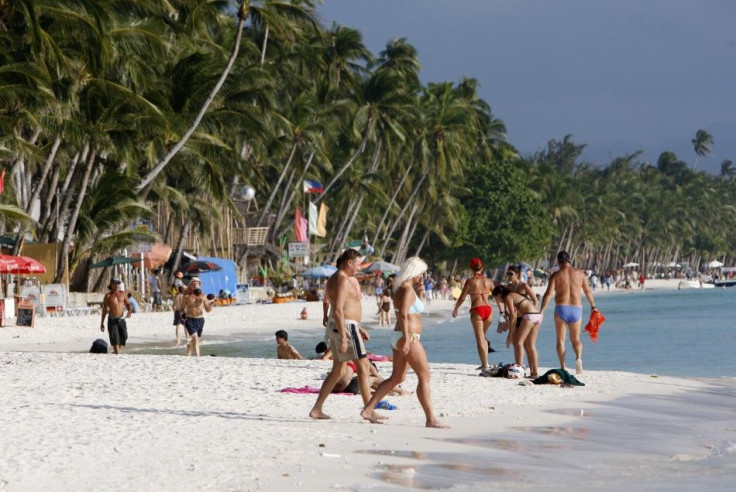China-Philippines South China Sea Dispute Hurting Philippines? Tourism Industry

The China-Philippines South China Sea dispute may have a devastating effect on the Philippines' vital tourism industry. The industry is bracing for the worst after Chinese travel agencies suspended all tours to the Philippines amid escalating tensions over the disputed Scarborough Shoal.
Roughly 80 tour groups comprising some 1,500 Chinese visitors have already canceled trips to the Philippines after Beijing warned its citizens against travel to the country. Nearly all Chinese people currently on tours of the Philippines will return to China by May 16, according to China Daily.
Several airlines, meanwhile, suspended charter services to and from China.
We are saddened by this development but we have to face the music, John Paul Cabalza, executive vice president at Philippine Travel Agencies Association, told Channel News Asia. It's not really related to tourism but it's an offshoot of it. The economical factors of tourism will be affected because of this problem.
The Undersecretary for Tourism Regulation and Coordination, Maria Victoria Jasmin, told a local radio station that resorts in Boracay, Bohol, Cebu, and Manila noted a decrease in bookings. She was confident, however, that the nation would meet its target of 4.6 million tourist arrivals in 2012.
This is temporary, she said. The Philippines is very resilient. Disasters have come and gone but somehow we have bounced back.
Travel agencies in China will also incur losses because of the suspended business, industry insiders said. All were expected to offer full refunds for the Philippines-bound tours.
The People's Republic warned its residents last Thursday against travel to the Philippines due to protests of Filipino groups at Chinese embassies worldwide over the South China Sea conflict. The Philippine government, meanwhile, made it clear that it was not involved in the protests.
China is the third-largest source of visitors to the Philippines and its fastest growing market. Chinese tourist arrivals surged 77 percent in the first quarter of this year alone with the average tourist staying three days and spending $100-200 a day. Industry officials are looking to South Korea, Japan, and the United States to overcome the loss.
The standoff in the South China Sea -- which Manila calls the West Philippine Sea -- began in earnest on April 10 when Chinese surveillance ships prevented officials on a Philippine warship from arresting Chinese fishermen in contested waters near the Scarborough Shoal, also known as Huangyan in China. The issue is part of a wider territorial dispute in the South China Sea that involves several nations including Malaysia, Brunei, Vietnam, and Taiwan. Thought to contain vast amounts of oil and natural gas, China lays claim to nearly the entire region and warned last week that it was ready to respond to any escalation by Manila.
The Association of Southeast Asian Nations has been negotiating a code of conduct for the South China Sea to ease tensions. The deadline for the agreement is July 2012.
© Copyright IBTimes 2024. All rights reserved.






















